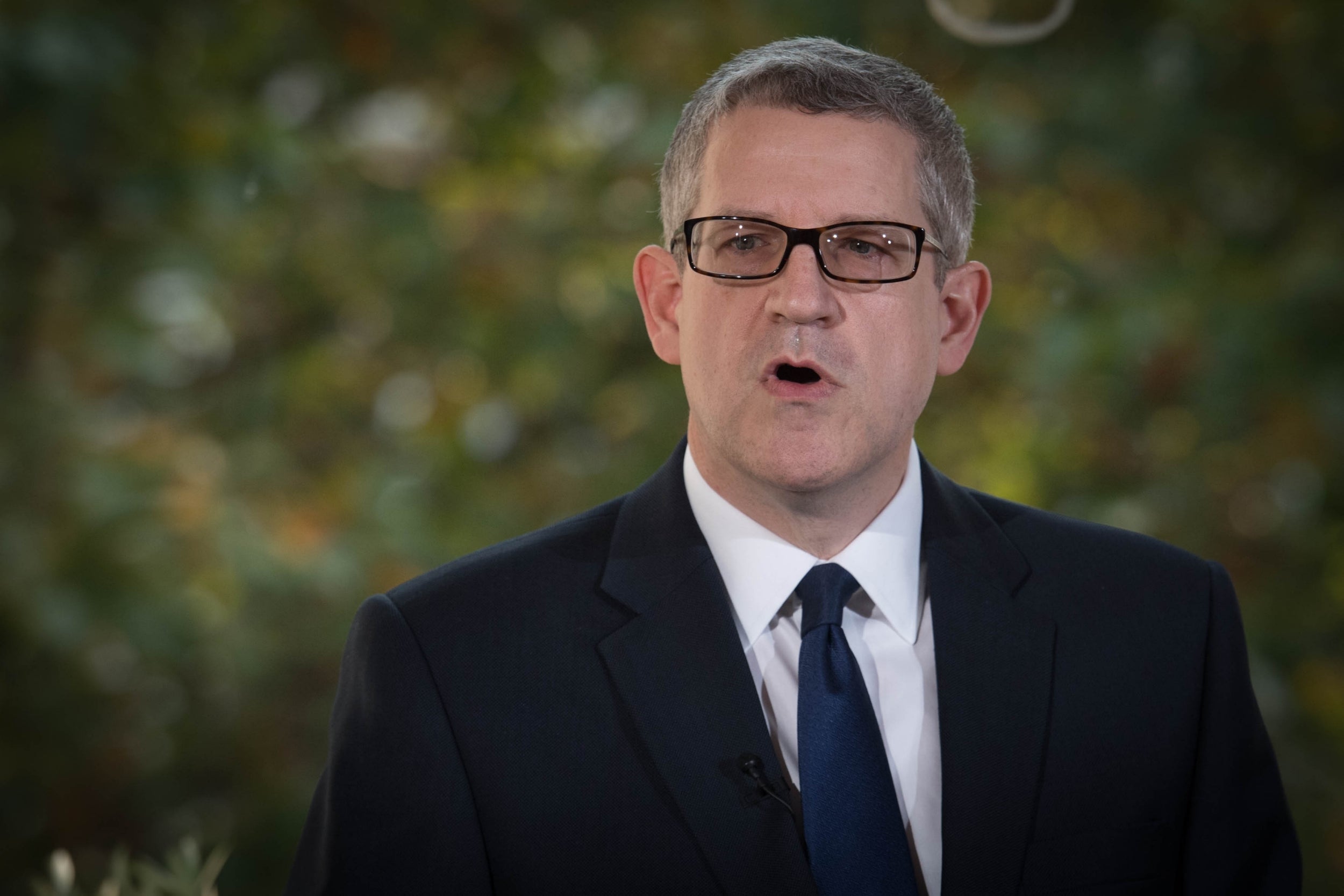MI5 chief dismisses US warnings about risk Huawei poses to intelligence sharing
Donald Trump has warned Chinese firm is a 'security danger'

Your support helps us to tell the story
From reproductive rights to climate change to Big Tech, The Independent is on the ground when the story is developing. Whether it's investigating the financials of Elon Musk's pro-Trump PAC or producing our latest documentary, 'The A Word', which shines a light on the American women fighting for reproductive rights, we know how important it is to parse out the facts from the messaging.
At such a critical moment in US history, we need reporters on the ground. Your donation allows us to keep sending journalists to speak to both sides of the story.
The Independent is trusted by Americans across the entire political spectrum. And unlike many other quality news outlets, we choose not to lock Americans out of our reporting and analysis with paywalls. We believe quality journalism should be available to everyone, paid for by those who can afford it.
Your support makes all the difference.The head of MI5 has said he has no reason to think Britain’s intelligence-sharing relationship with the United States will be damaged if the Chinese tech giant Huawei is given access to the UK’s 5G network.
The government has come under intense pressure from the US administration not to allow Huawei a role in building 5G network amid fears that granting a Chinese firm access to the communications network could be a security risk.
However, in an interview with Financial Times, MI5 director general Sir Andrew Parker expressed confidence that Britain’s intelligence gathering would not suffer if it did decide to go ahead.
Asked specifically, if he thought the UK would lose out on its intelligence relationships, he said: “I’ve no reason today to think that.”
Sir Andrew said the US-UK intelligence partnership was “very close and trusted”, adding: “It is, of course, of great importance to us. And, I dare say, to the US too, though that’s for them to say. It is a two-way street.”
His comments came as it was reported that a US delegation from National Security Agency and the National Economic Council was due in London on Monday in a last-ditch lobbying drive to persuade the British officials not to give Huawei a role.
Prior to the general election, Boris Johnson was reported to be moving towards a decision to allow the firm to provide “non-contentious” elements of the system, but a final decision was shelved until after polling day.
However, at last month’s Nato leaders’ meeting in London, in the midst of the election campaign, the prime minister came under direct pressure from President Donald Trump who said Huawei was a “security danger”.
Mr Johnson responded by saying he would not do anything that would “prejudice our vital national security interests” or the UK’s ability to cooperate with other members of the Five Eyes security partnership, including the US, Canada, Australia and New Zealand.

Many Tory MPs have also expressed deep concern at the prospect that Huawei could be given a role.
Alicia Kearns, the MP for Rutland and Melton, who previously worked for a number of government departments as a communications specialist, and as an adviser on counter-terrorism in the Middle East, said the Chinese “would never let us near their national critical infrastructure”.
She told Carolyn Quinn on BBC Radio 4’s Westminster Hour: “I haven’t seen the intelligence. The cabinet will have seen the intelligence. I’m very uncomfortable with the idea of Huawei being anywhere near our national critical infrastructure.”
But at the same time, ministers have come under pressure from the Chinese government which has warned of the commercial consequences if it is barred.
PA
Join our commenting forum
Join thought-provoking conversations, follow other Independent readers and see their replies
Comments